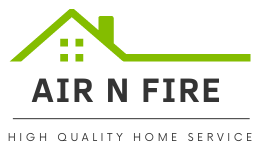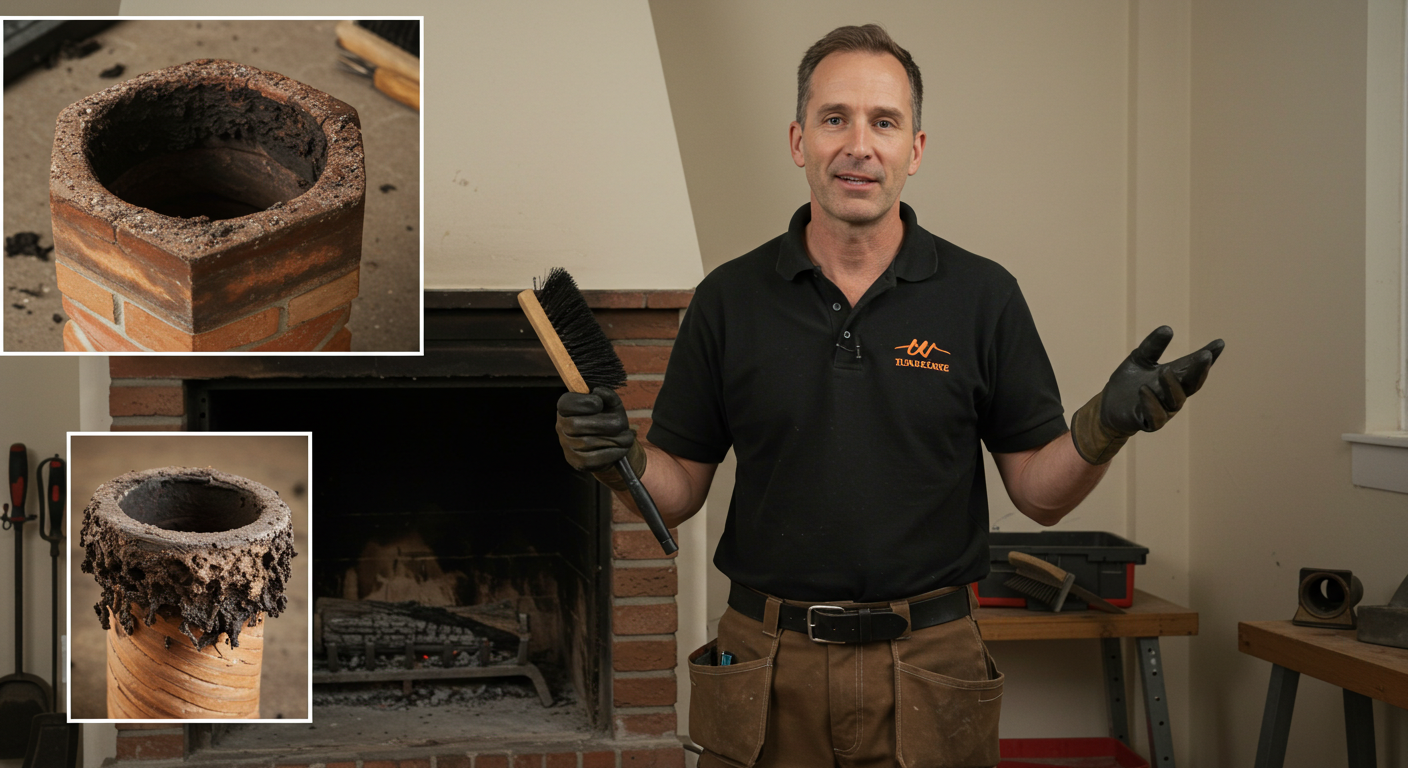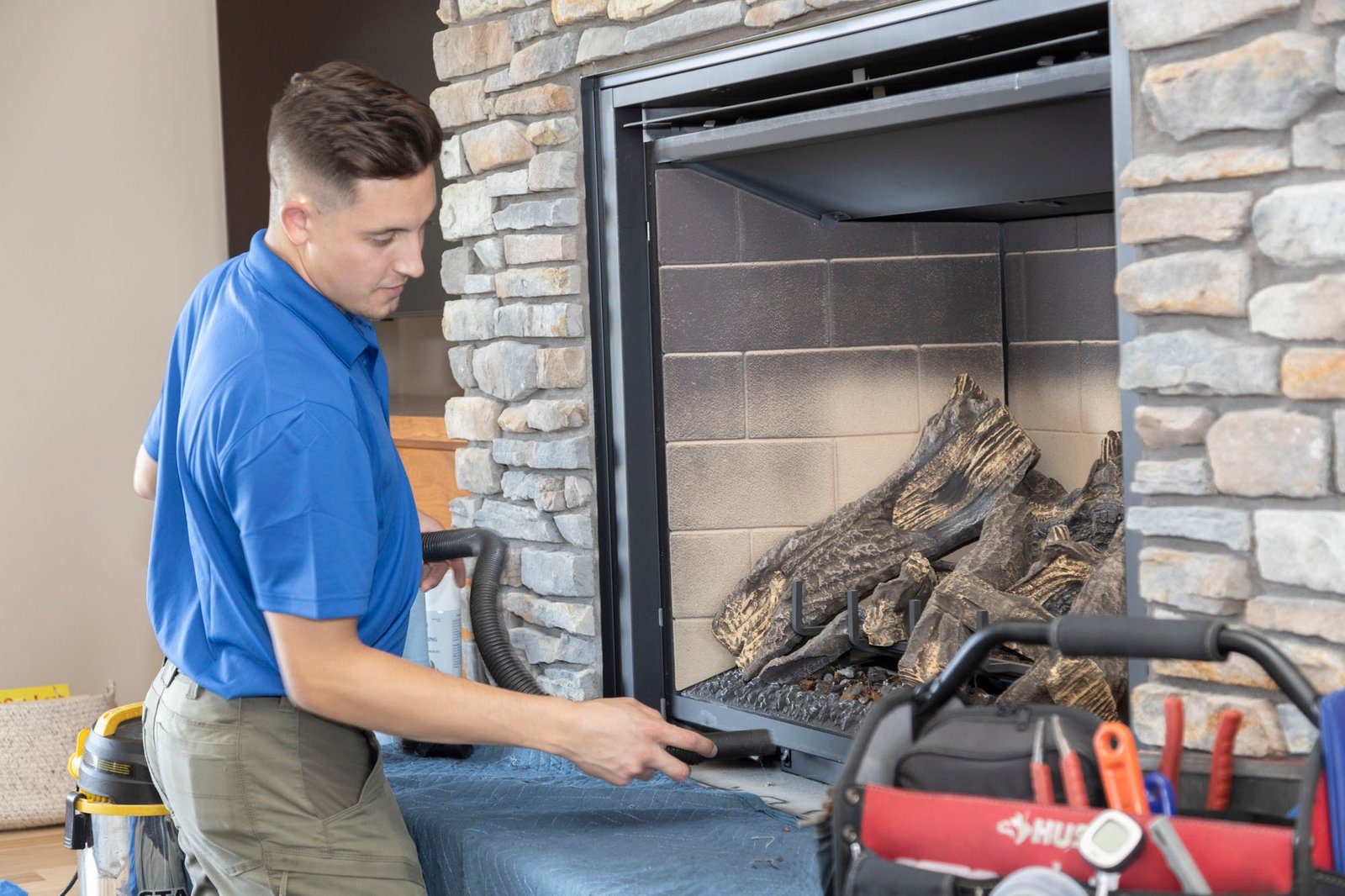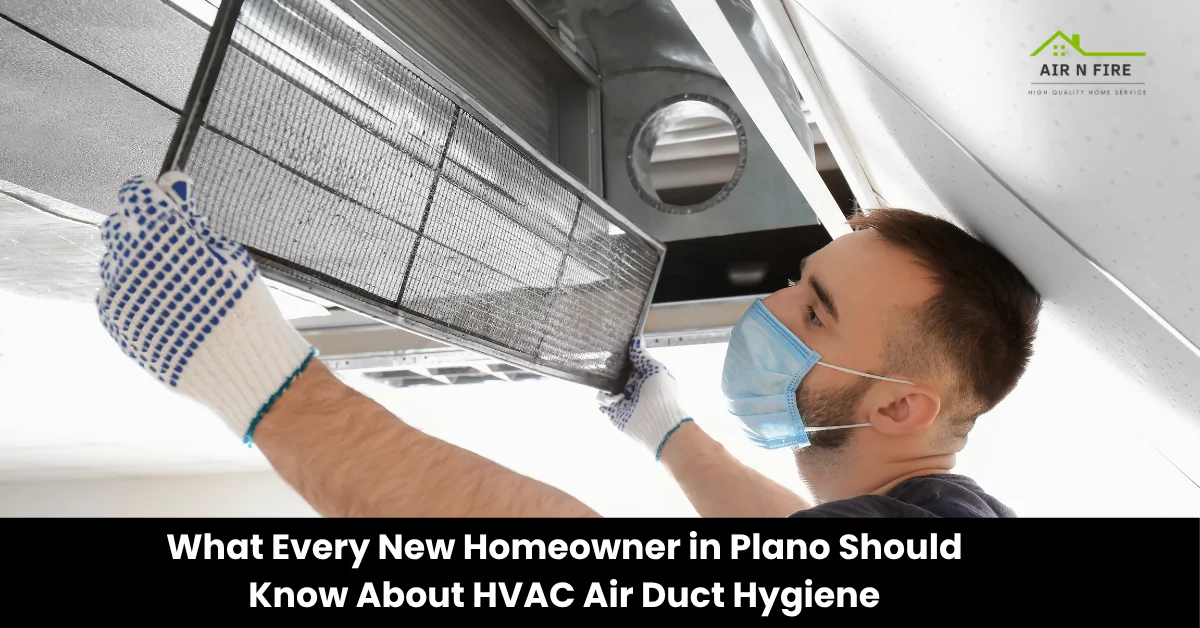A good chimney never allows a home to grow cold by providing warmth, coziness, and aesthetic appeal. However, chimney upkeep also includes cleaning the fireplace to improve efficiency and safety by preventing fire hazards.
For the best fireplace maintenance of your residential property, you can either opt for professional chimney cleaning services or learn safe fireplace cleaning methods at home. This article will explore the importance of chimney maintenance and how to clean a fireplace properly.
Benefits Of Fireplace Cleaning
Fireplaces can quickly accumulate soot, debris, and creosote over time, which can cause unmaintained, dirty fireplaces with hazardous buildup and fire risks. Here is why clean your fireplace regularly:
1. Ensures Safety And Prevents Hazards
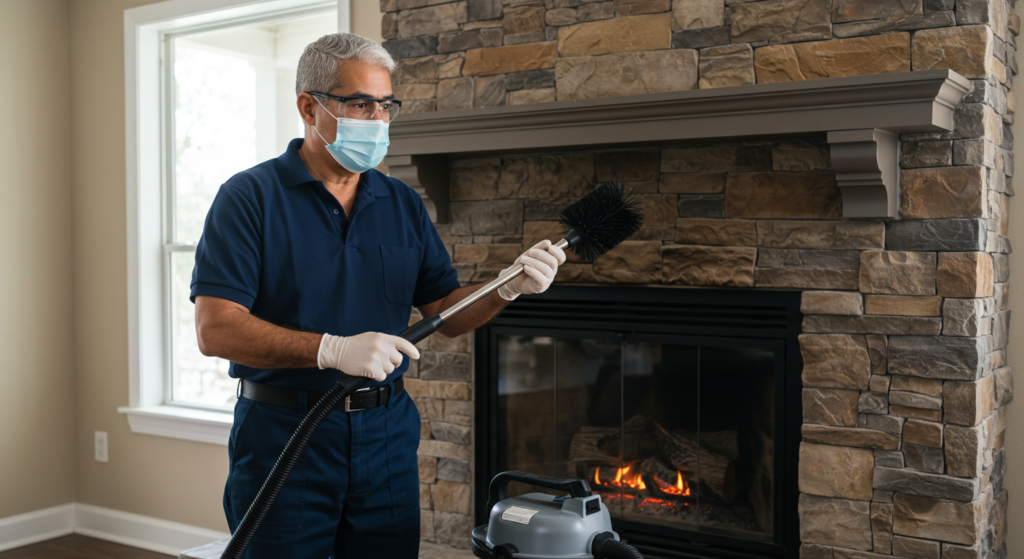
The topmost benefit of keeping your fireplace safe and clean is to promote the safety of your family and home by avoiding a chimney fire. When you burn wood, a sticky tar-like byproduct called creosote is highly flammable and can easily cause widespread fire.
Moreover, blocked flue due to soot or ash can also cause poor ventilation, which can be unhealthy and risky. A detailed and thorough chimney sweep in McKinney should be done for creosote removal and soot elimination from the firebox to prevent fire hazards in fireplaces.
2. Removes Ashes In The Firebox
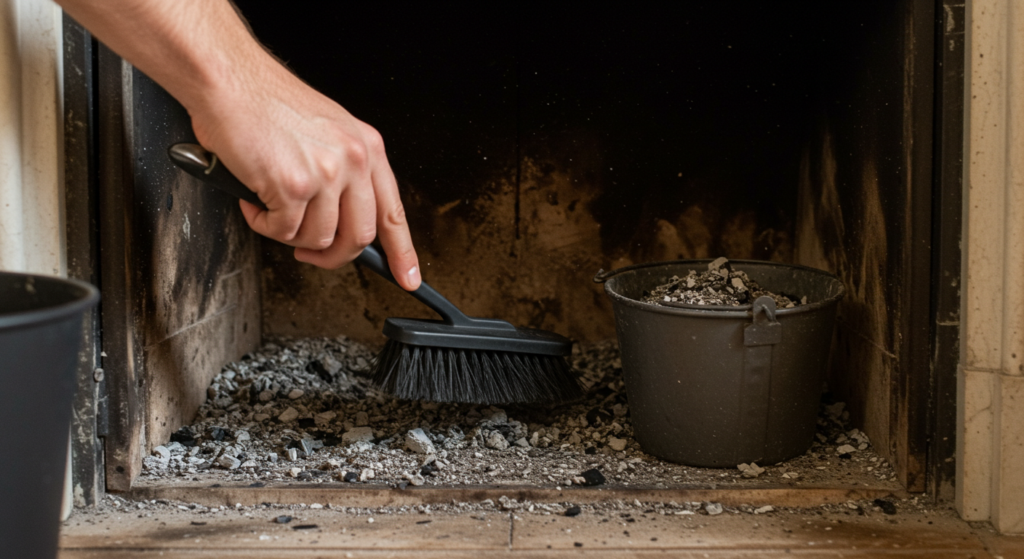
Removing ashes is important as they can cause poor ventilation and restricted airflow to the fire, leading to poor combustion and hiding hot embers in the residue that can cause sudden re-ignition long after the fire has been extinguished.
Ash in dirty fireplaces can also be corrosive, causing structural damage when mixed with water if expert chimney cleaning and inspection are not followed. Moreover, ashes can cause unpleasant odors, dust, and allergens to spread through your home, making it necessary to promptly follow efficient fireplace cleaning solutions.
3. Increases Efficiency And Performance

Regular fireplace inspection services in Plano and cleaning will increase your fireplace’s efficiency and performance. A dirty fireplace with hazardous soot and creosote buildup can cause inefficient heating, as restricted airflow makes it harder to remove smoke and draw in fresh oxygen, which can help in good combustion.
These neglected chimneys also increase energy costs, as the blocked flues do not provide enough warmth. If the best fireplace cleaning methods are followed by the timely removal of soot and ashes, an effective and hot fire will be produced.
4. Reduces Odors
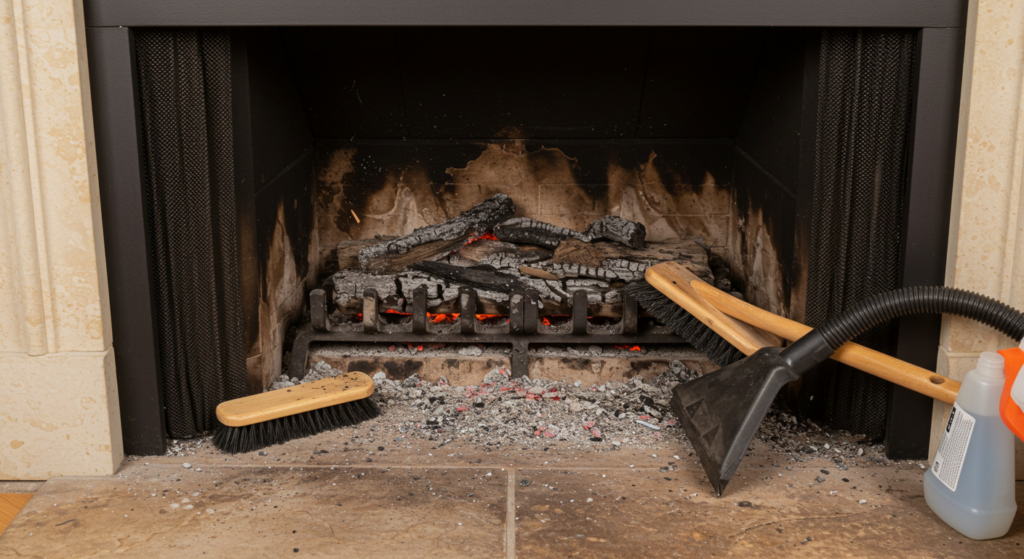
When mixed with moisture, ashes can cause unpleasant and acrid odors that can spoil homeowners’ indoor living spaces. Moreover, if you have a dirty fireplace with a clogged ventilation system, chimney brush cleaning and creosote removal become necessary, as smoke can collect inside the house rather than venting out through the chimney.
Smoke vent services and regular chimney inspection schedules in Texas can help avoid soot or ashes build-up. This will reduce odors and keep your home fresh, smoke-free, and pleasant.
5. Prolongs Fireplace’s Lifespan
Regular fireplace cleaning and repairs can increase the lifespan of your fireplace. Burning residue and debris like soot, creosote, and ash are corrosive and can erode the inner lining of the chimney over time. This can lead to structural repairs or even whole-home heating system replacement, which can cost hefty amounts.
That’s why professional chimney cleaning services are essential for fireplace maintenance. They ensure that any damages are checked promptly. Furthermore, if you go for annual fireplace maintenance for winter, you can also identify wear and tear on time.
6. Avoids Carbon Monoxide Poisoning
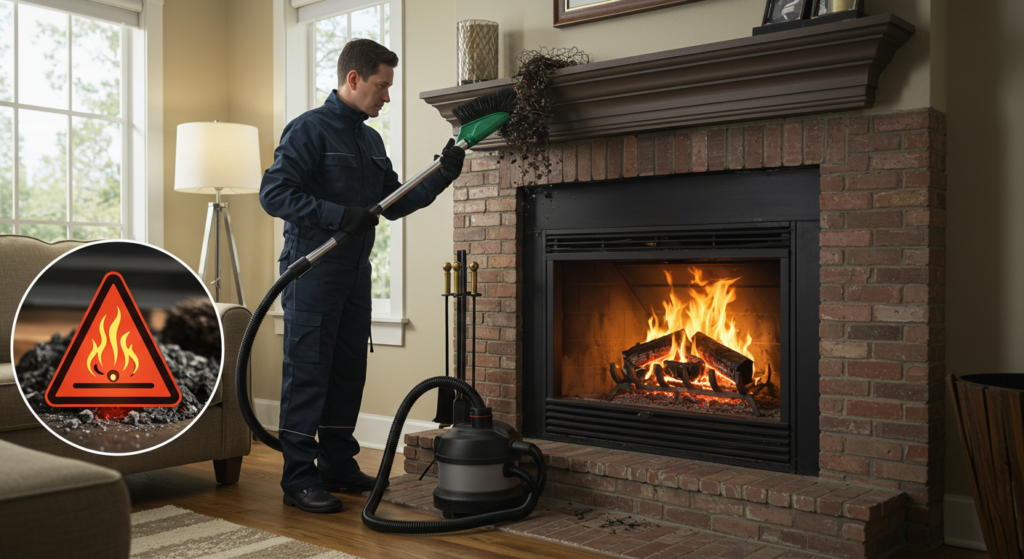
Carbon monoxide poisoning is one of the worst consequences of a dirty fireplace and neglected chimney. Carbon monoxide is a colorless and odorless gas produced by the incomplete combustion of wood, gas, and coal due to poor airflow. This gas is highly unhealthy and dangerous if inhaled in huge quantities.
If there are blocked flues with poor ventilation and damaged chimneys, instead of removing gases from the vents, they can get backed up in the house and cause harmful effects for the homeowners. To prevent this, check out Top Warning Signs You Need A Fireplace Cleaning in Texas for early detection and safety.
7. Improves Air Quality Of House
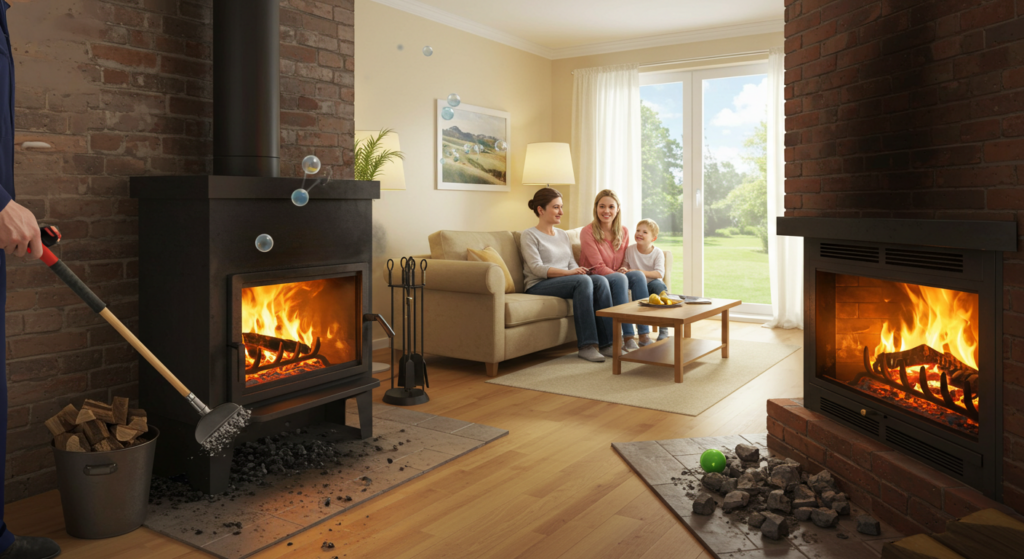
A dirty fireplace with poor ventilation and blocked flue can cause unhealthy air, hazardous buildup of harmful pollutants, and burning residues like soot, ash, and creosote inside your house. This can cause several types of allergies, respiratory issues, and even skin problems in the residents.
If you want to know how fireplace cleaning improves air quality, this is the right place. Proper chimney upkeep allows combustion byproducts to be efficiently removed from the home, making indoor air fresh, healthy, and completely safe to breathe.
8. Prevents House And Chimney Fires
A dirty fireplace is one of the most significant fire risks due to the hazardous buildup of inflammable components like creosote and soot in the chimney. If the temperature of the chimney goes high because of poor fireplace maintenance, creosote can ignite, causing a chimney fire that can also spread to the rest of the house.
Moreover, any blockage of chimneys and vents can restrict airflow and cause poor ventilation, which can also increase the heat in the fireplace. Therefore, regular fireplace cleaning for home safety is essential to clear all fire residues.
9. Reduces Exposure To Harmful Pollutants
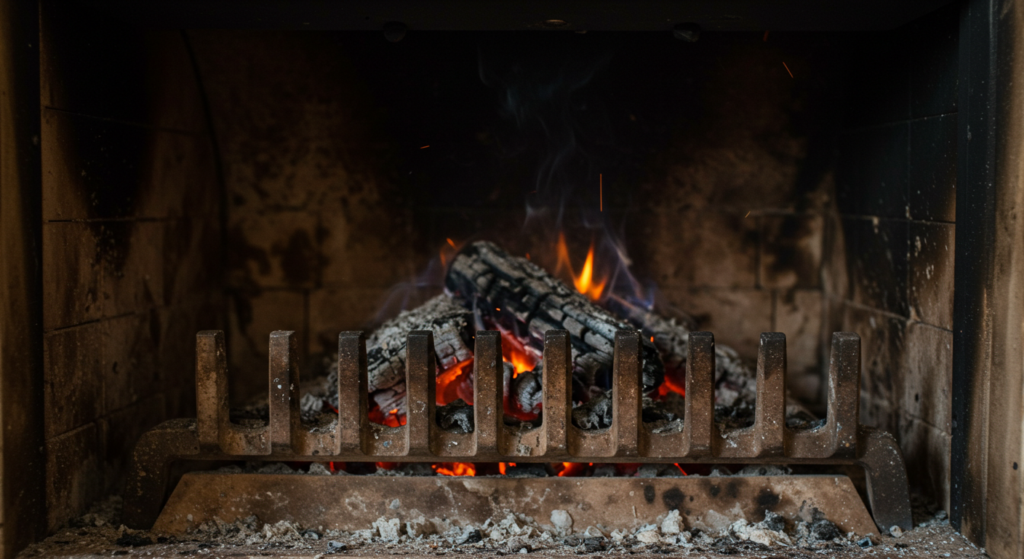
The importance of chimney maintenance can be asserted because several harmful pollutants can accumulate in your house due to poor ventilation systems and smoke control. These pollutants, like particulate matter, can enter the respiratory tract, especially the lungs, to cause various breathing problems like asthma.
Furthermore, polycyclic aromatic hydrocarbons (PAH) also act as carcinogens and adversely affect human health. This is why chimney inspection for fireplace safety should be done regularly to reduce exposure to harmful pollutants.
10. Stop Water Damage
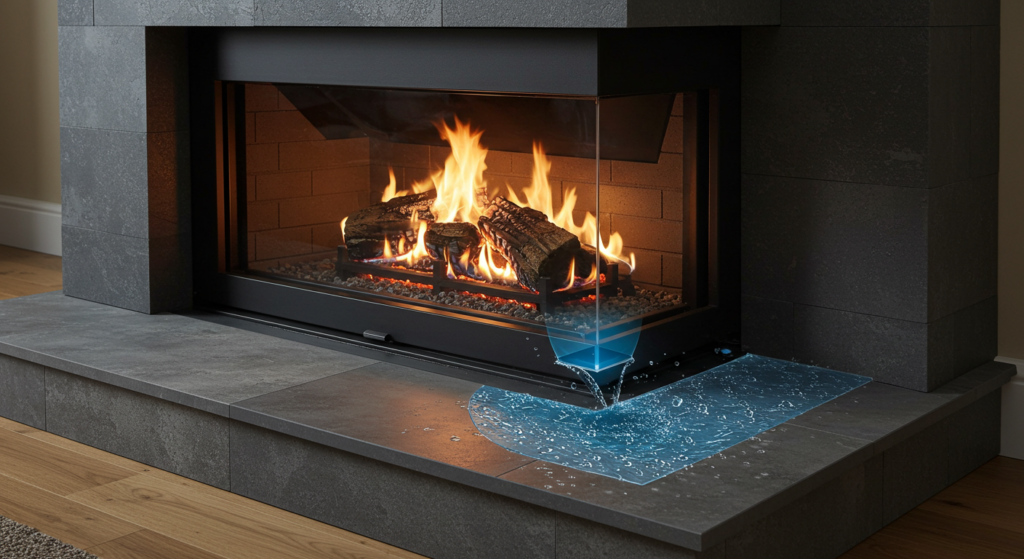
Water damage is quite common in neglected chimneys. If left unattended, water can seep through cracks in the mortar, damaged flashing, or the chimney cap, damaging the structure of the fireplace.
Moreover, creosote easily absorbs moisture, causing corrosion and structural weakening. Learn more about repair costs in Fireplace Installation And Replacement Cost for long-term prevention.
How Often Should You Get Your Fireplace Cleaned?
Fireplaces should be cleaned regularly depending on how much you use them. Fireplace maintenance for winter is necessary on an annual basis. If you have a wood-burning fireplace, it is best to go for professional chimney cleaning services at least once a year. On the contrary, gas chimneys require less maintenance. However, annual inspections should still be done.
How To Maintain Fireplace For Winters?
Fireplace winter maintenance is necessary to ensure your fireplace can provide warmth in the colder months. To do so, it is best to follow annual chimney maintenance tips at home, or you can hire professional chimney cleaning services in Austin. Specifically, make sure to check the firebox and chimney for any blockage.
Expert Fireplace Cleaning By Air N Fire!
If you are looking for professional fireplace cleaning for home safety, you are at the right place. We at Air N Fire know how to care for the fireplaces in your homes, which keep you cozy and warm in the colder months.
We provide exceptional air duct cleaning, dryer vent cleaning, chimney sweeping, and all types of fireplace cleaning services to prepare your fireplace for winter.
If you want premium quality fireplace maintenance services using the latest equipment and innovative techniques at cost-effective rates, contact us now!
FAQs
1. Why is fireplace cleaning important for home safety?
Regular fireplace cleaning removes hazardous buildup like creosote and soot, which prevents chimney fires, reduces exposure to harmful pollutants, and ensures proper ventilation, keeping your home safe.
2. How often should I clean my fireplace?
Wood-burning fireplaces should be cleaned at least once a year, while gas fireplaces need less maintenance, but an annual inspection is recommended to ensure proper operation and safety.
3. Can a dirty fireplace affect air quality in my home?
Yes, a dirty fireplace with poor ventilation can lead to the accumulation of harmful pollutants like soot and creosote, negatively impacting indoor air quality and causing respiratory issues.
4. What are the benefits of professional fireplace cleaning?
Professional cleaning ensures thorough removal of hazardous materials, improves fireplace efficiency, and prevents costly repairs. Experts use the latest tools and techniques for safe, effective cleaning and maintenance.
5. How does fireplace cleaning improve efficiency and performance?
Regular cleaning removes soot and creosote buildup, which enhances airflow, improves combustion, and boosts heating efficiency, resulting in lower energy bills and a hotter, more effective fire.
